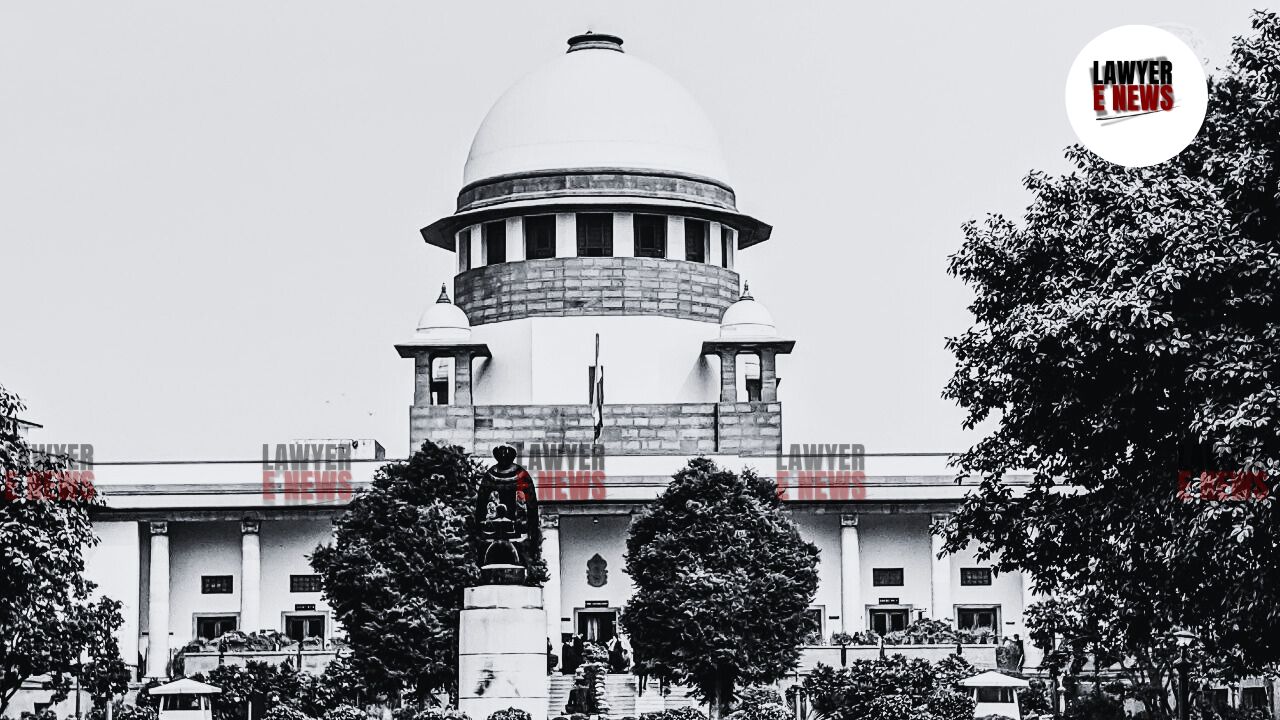-
by Admin
15 February 2026 2:36 AM



Supreme Court of India set aside the 2008 Andhra Pradesh High Court judgment that allowed the alienation of government-assigned lands. The apex court underscored the inviolable principle of non-alienability under the Andhra Pradesh Assigned Lands (Prohibition of Transfer) Act, 1977 (AP AL (POT) Act) and remanded the matter for reconsideration in adherence to statutory mandates.
"Prohibition of Transfer Is Fundamental to Assigned Lands Policy"
Whether lands assigned under the Laoni Rules, 1950, and governed by the 1958 Revised Assignment Policy, are subject to resumption under the AP AL (POT) Act, despite High Court validation of sale transactions under the Telangana Tenancy Act, 1950.
The Supreme Court declared:
"The prohibition of transfer reflects a public policy essential to preserving the integrity of land assignment schemes."
The appeals centered on land classified as Kharij Khatta Sarkari in Survey Nos. 37 and 38/1 of Khanamet Village, Andhra Pradesh, which was granted under the Laoni Rules, 1950. Despite the non-alienability condition, these lands were sold through registered sale deeds. The government sought to resume the lands under the AP AL (POT) Act, but the High Court invalidated the resumption orders, relying on permissions granted under the Telangana Tenancy Act, 1950.
The Court emphasized that lands granted under the Revised Assignment Policy were assigned free of cost with explicit prohibition on transfer:
"Patta certificates under Rule 9(g) of the 1958 policy unambiguously restricted alienation, contrary to the High Court's presumption."
The Court clarified that permissions granted under Sections 47 and 50-B of the Telangana Tenancy Act apply only to patta lands, not assigned lands under the AP AL (POT) Act:
"The validation of sale transactions did not override statutory restrictions against transfer."
The Court found that the High Court's judgment was based on a misconception that the lands were assigned upon collection of market value:
"The impugned judgment overlooked the appellants' consistent denial of market value collection, warranting interference."
Relying on earlier judgments in Gudepu Sailoo v. Government of Andhra Pradesh and Yadaiah v. State of Telangana, the Court reiterated:
"The Revised Assignment Policy's condition of non-alienability, codified in G.O.M.S. No. 1406 (1958), is sacrosanct and binding."
The Supreme Court set aside the High Court's judgment and remanded the matter for fresh adjudication, directing that the Writ Petitions be reconsidered in light of the binding precedents and statutory provisions.
Set Aside All Impugned Judgments: The High Court's 2008 judgment and related decisions in connected appeals were nullified.
Restore Writ Petitions for Fresh Consideration: The High Court was directed to expeditiously resolve the restored cases within six months.
Adherence to Non-Alienability Principle: The High Court must address the statutory and policy framework prohibiting transfer.
The Supreme Court’s ruling reinforces the non-negotiable principle of non-alienability in government-assigned lands, preserving public interest and ensuring compliance with legal frameworks.
Date of Decision: 02/01/2025
